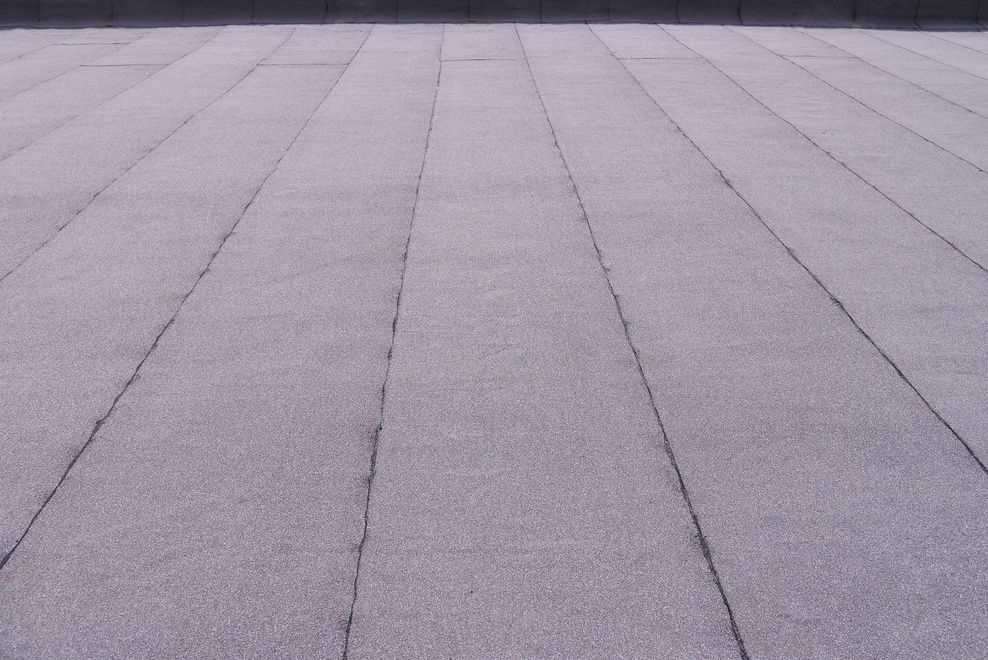Modified Bitumen Roofing service In DetroitModified bitumen roofing is a popular choice for commercial and industrial buildings, as well as some residential properties. It is a type of asphalt-based roofing that offers a number of advantages over traditional roll roofing and built-up roofing systems. In this article, we will explore the differences between modified bitumen and roll roofing, as well as built-up roofing and modified bitumen. We will also discuss modified bitumen roofing installation, manufacturers, types of modified bitumen roofing, and the modified bitumen membrane.
Modified Bitumen vs Roll Roofing: One of the main differences between modified bitumen and roll roofing is the way they are installed. Roll roofing is applied in a single layer, while modified bitumen is applied in multiple layers. This provides added protection and durability to the roof. Additionally, modified bitumen is able to withstand extreme temperatures and weather conditions better than roll roofing. |
|
Built-Up Roof vs Modified Bitumen:
Another difference between modified bitumen and built-up roofing is the materials used. Built-up roofing uses multiple layers of tar and gravel, while modified bitumen uses a combination of asphalt and other materials. This makes modified bitumen a more lightweight and flexible option. Additionally, modified bitumen is able to withstand extreme temperatures and weather conditions better than built-up roofing.
Modified Bitumen Roofing Installation:
Installing a modified bitumen roofing system requires a certain level of expertise and experience. The installation process begins with the application of a base layer of modified bitumen, followed by additional layers, depending on the type of modified bitumen being used. The final layer is typically a granulated surface layer that provides additional protection and durability.
Modified Bitumen Roofing Manufacturers:
There are a number of manufacturers of modified bitumen roofing systems, including GAF, CertainTeed, and Johns Manville. These manufacturers offer a wide range of modified bitumen roofing products, including different types of modified bitumen and various granulated surfaces.
Types of Modified Bitumen Roofing:
There are several types of modified bitumen roofing available, including torch-applied, cold-applied, and self-adhering. Torch-applied modified bitumen is applied using a heat source, while cold-applied modified bitumen is applied without heat. Self-adhering modified bitumen is applied using a peel-and-stick method. Each type has its own unique advantages and disadvantages.
Modified Bitumen Membrane:
A modified bitumen membrane is the final layer of a modified bitumen roofing system. This layer provides added protection and durability to the roof, and is typically made of a granulated modified bitumen. This layer is designed to withstand extreme temperatures and weather conditions, and is available in a variety of colors.
GAF Modified Bitumen Installation Instructions:
GAF is one of the leading manufacturers of modified bitumen roofing systems. Their installation instructions vary depending on the type of modified bitumen being used. However, in general, GAF's modified bitumen installation instructions include steps such as preparing the roof surface, applying the modified bitumen, and applying the granulated surface layer.
Modified bitumen roofing is a popular choice for commercial and industrial buildings in Detroit, as well as some residential properties. It offers a number of advantages over traditional roll roofing and built-up roofing systems, including added protection and durability. The installation process requires a certain level of expertise and experience, and there are a number of manufacturers of modified bitumen roofing systems. Additionally, there are several types of modified bitumen. Give us a call today for a free estimate.
Another difference between modified bitumen and built-up roofing is the materials used. Built-up roofing uses multiple layers of tar and gravel, while modified bitumen uses a combination of asphalt and other materials. This makes modified bitumen a more lightweight and flexible option. Additionally, modified bitumen is able to withstand extreme temperatures and weather conditions better than built-up roofing.
Modified Bitumen Roofing Installation:
Installing a modified bitumen roofing system requires a certain level of expertise and experience. The installation process begins with the application of a base layer of modified bitumen, followed by additional layers, depending on the type of modified bitumen being used. The final layer is typically a granulated surface layer that provides additional protection and durability.
Modified Bitumen Roofing Manufacturers:
There are a number of manufacturers of modified bitumen roofing systems, including GAF, CertainTeed, and Johns Manville. These manufacturers offer a wide range of modified bitumen roofing products, including different types of modified bitumen and various granulated surfaces.
Types of Modified Bitumen Roofing:
There are several types of modified bitumen roofing available, including torch-applied, cold-applied, and self-adhering. Torch-applied modified bitumen is applied using a heat source, while cold-applied modified bitumen is applied without heat. Self-adhering modified bitumen is applied using a peel-and-stick method. Each type has its own unique advantages and disadvantages.
Modified Bitumen Membrane:
A modified bitumen membrane is the final layer of a modified bitumen roofing system. This layer provides added protection and durability to the roof, and is typically made of a granulated modified bitumen. This layer is designed to withstand extreme temperatures and weather conditions, and is available in a variety of colors.
GAF Modified Bitumen Installation Instructions:
GAF is one of the leading manufacturers of modified bitumen roofing systems. Their installation instructions vary depending on the type of modified bitumen being used. However, in general, GAF's modified bitumen installation instructions include steps such as preparing the roof surface, applying the modified bitumen, and applying the granulated surface layer.
Modified bitumen roofing is a popular choice for commercial and industrial buildings in Detroit, as well as some residential properties. It offers a number of advantages over traditional roll roofing and built-up roofing systems, including added protection and durability. The installation process requires a certain level of expertise and experience, and there are a number of manufacturers of modified bitumen roofing systems. Additionally, there are several types of modified bitumen. Give us a call today for a free estimate.

